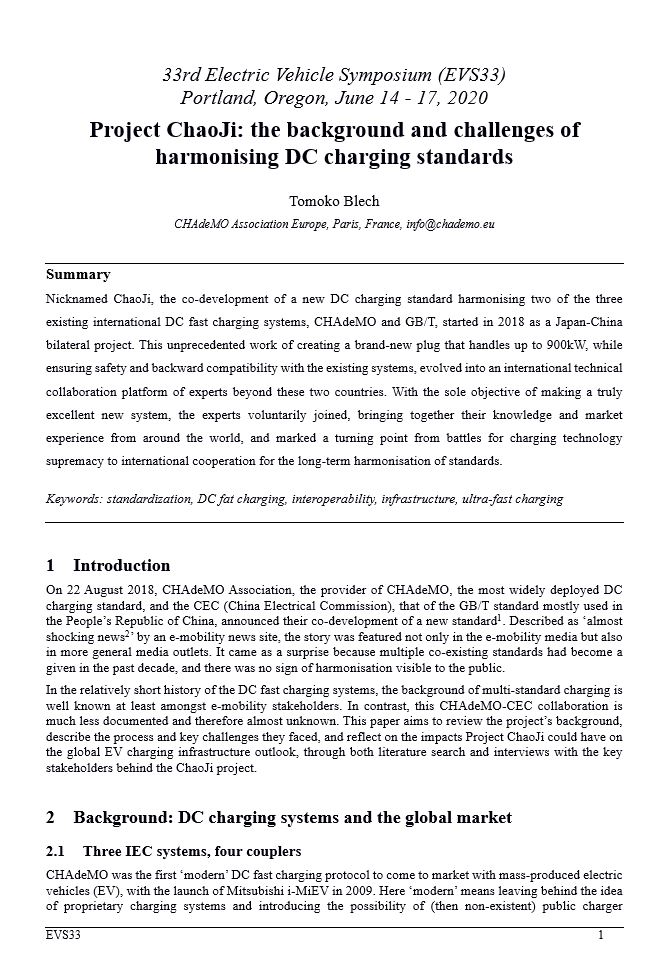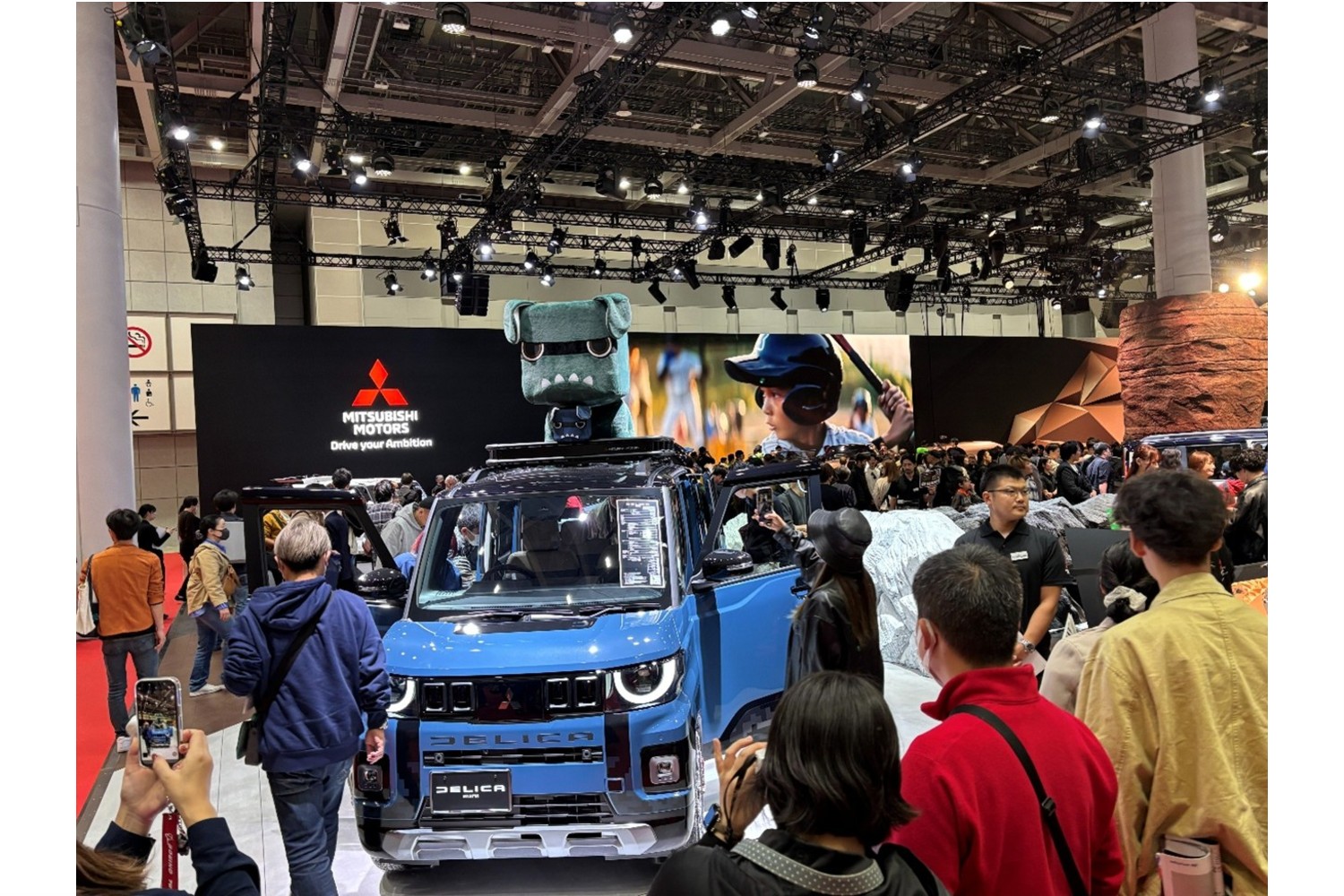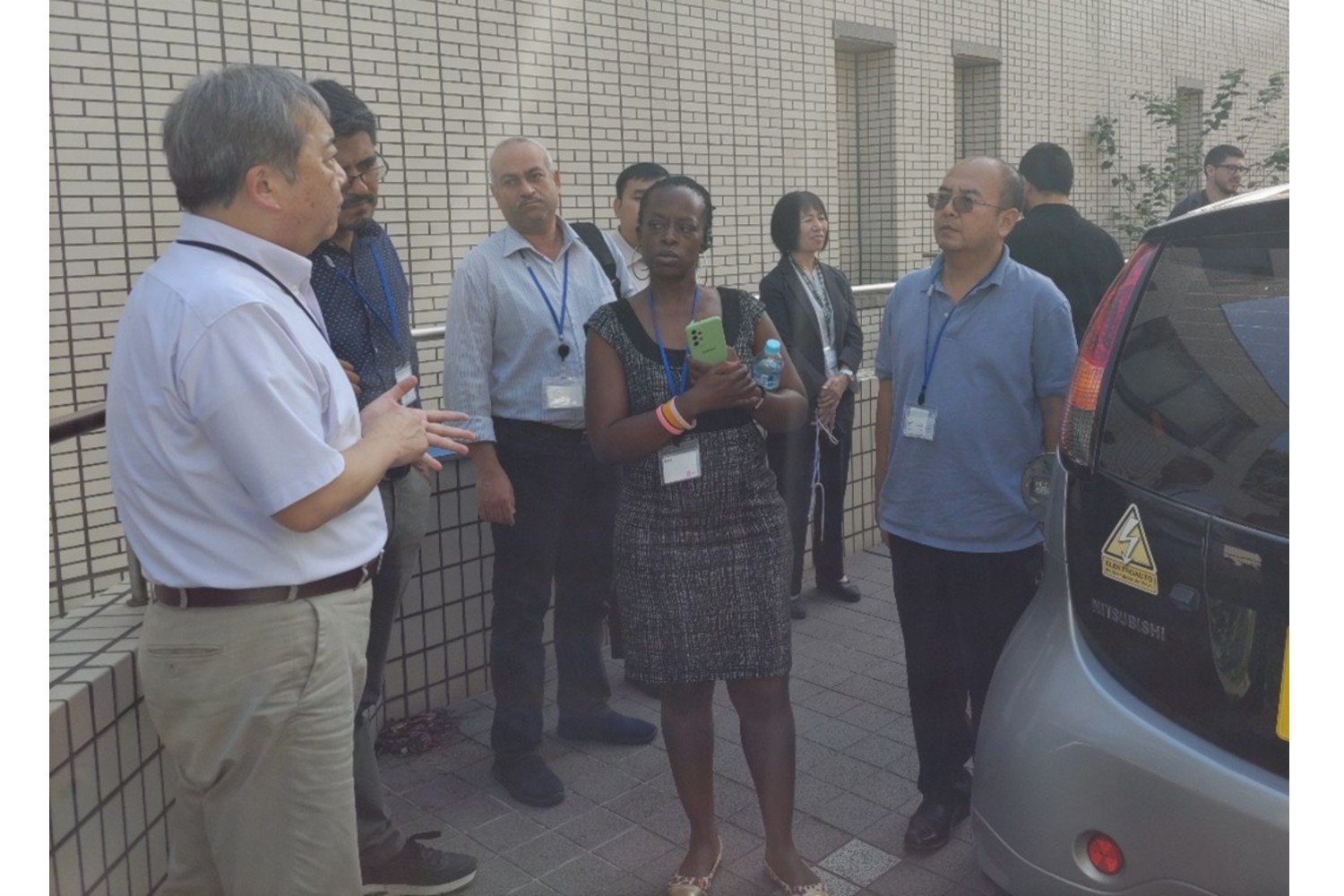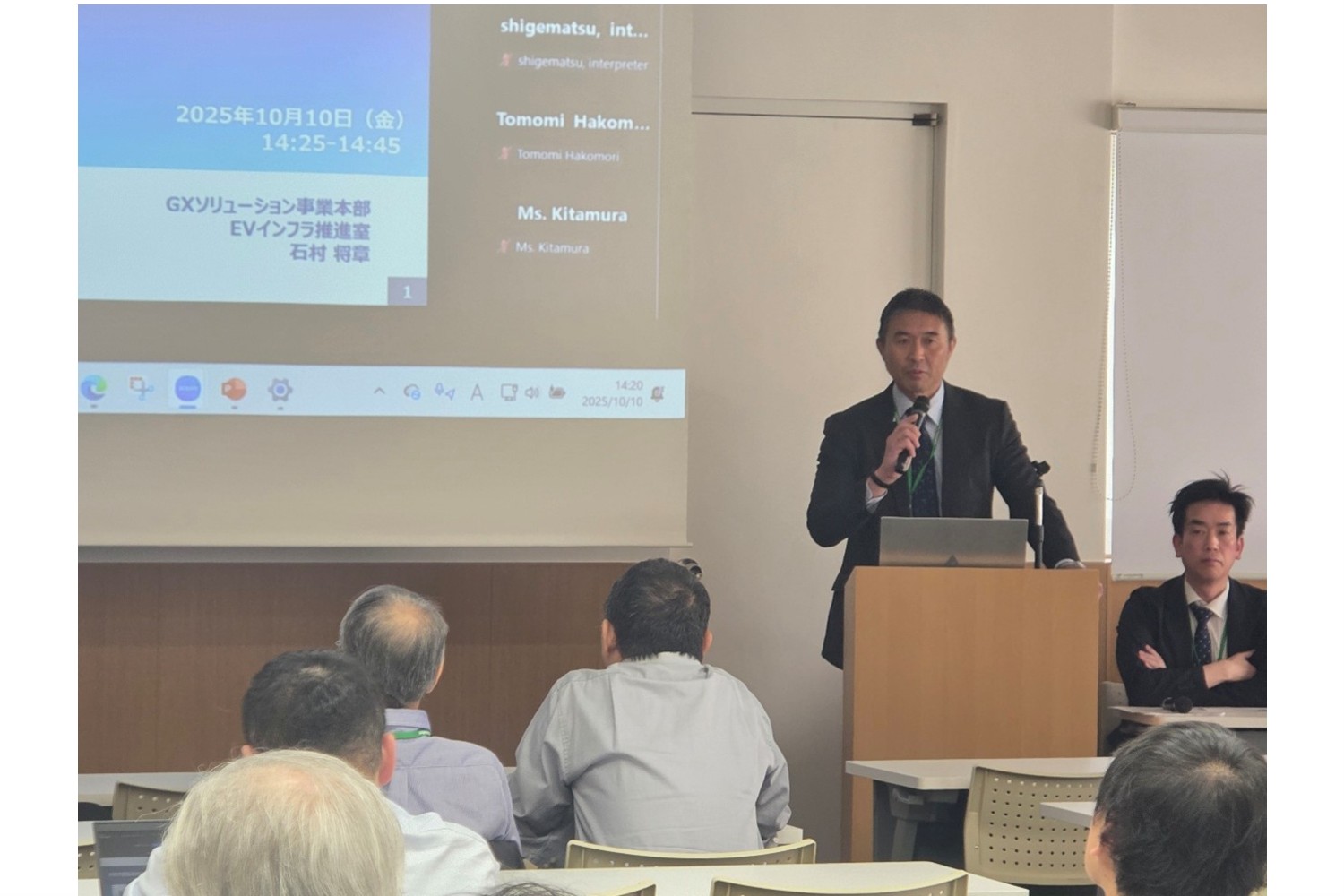The article on the background, process, challenges and evolution of the ChaoJi project that was supposed to be presented at EVS33 is available online

The EVS33 conference and exhibition scheduled for June 2020 were unfortunately cancelled due to Covid-19 precautions, but the article that CHAdeMO Europe’s Secretary General, Tomoko Blech would have been proud to present at the conference is instead published and made available online.
Titled “Project ChaoJi: the background and challenges of harmonising DC charging standards,” this paper depicts “the unprecedented work of creating a brand-new plug that handles up to 900kW, while ensuring safety and backward compatibility with the existing systems.” This project, currently being realised by the international community of experts, “marked a turning point from battles for charging technology supremacy to international cooperation for the long-term harmonisation of standards,” she writes.
The article starts with the background of this Sino-Japan project , why and how these two countries came together to co-develop a new ultra-high-power standard, then describes the ‘work’ itself: who joined, how the tasks were divided, what challenges they faced, and how the work evolved. The technical challenges, there were aplenty, notably ensuring mechanical strength and safety of the plug, making the connector compact, as well as around backward compatibility, not only with China’s GB/T and CHAdeMO, but with CCS. Supported by the voices of the interviewees – key persons who were the driving force of this project -, this article conveys their passion and ambitions of those involved for achieving a best-in-class new plug.
You can read and/or download the full article directly from the Zenodo.
The article was written in the first quarter of 2020, and the project has since evolved further, but this story of the beginning of the project should be a good intro to anyone who wishes to learn about the ChaoJi project. You may also want to refer to the presentations posted on the ChaoJi event page (June 2020) for further information.




